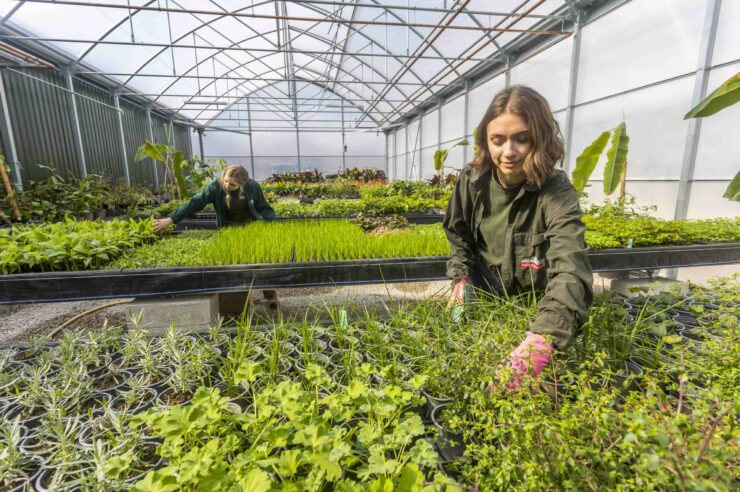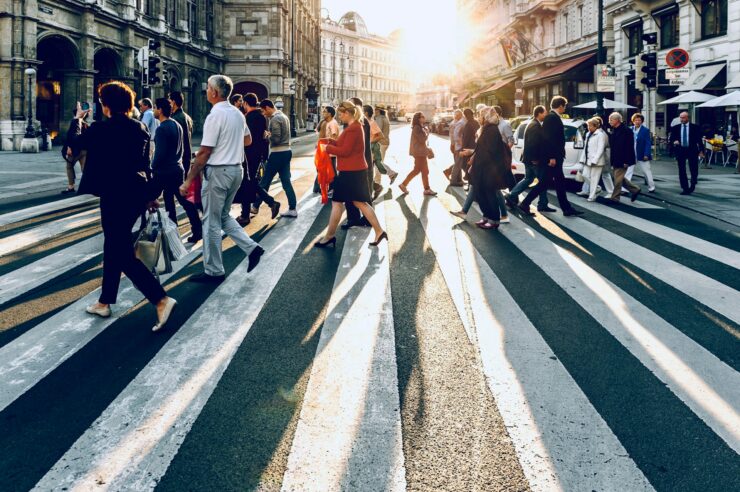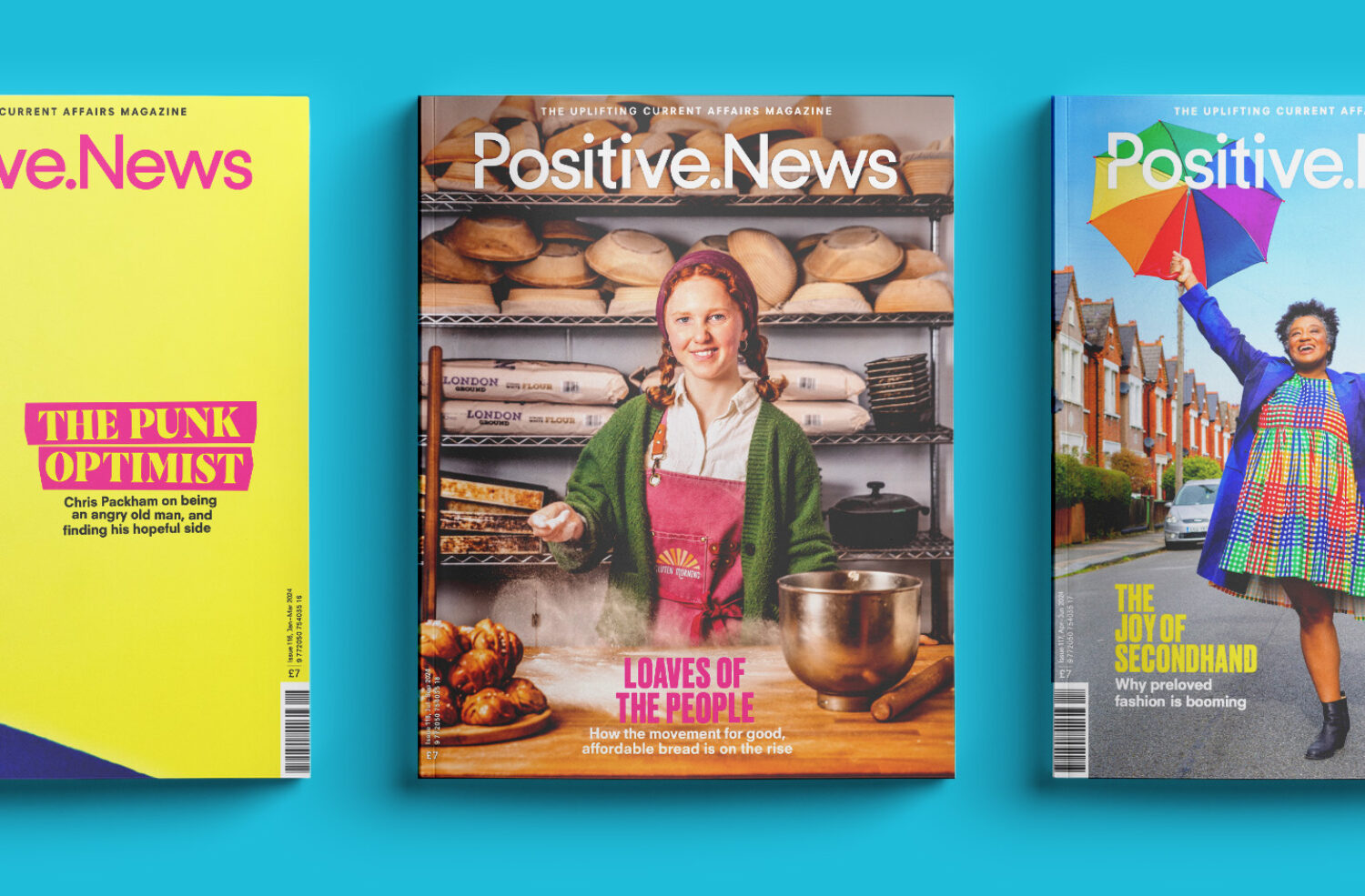A study showed how to boost life satisfaction, a climate villain went green, and South Korea went zen, plus more good news
This week’s good news roundup

Combining volunteering with getting fit significantly boosts life satisfaction, according to a study by the London School of Economics (LSE).
Researchers interviewed 3,600 participants from GoodGym, a fitness charity combining physical exercise with volunteering. It launched as a response to regular gyms “being a waste of energy and human potential”, it claims.
In the study, GoodGym members reported a 27% increase in ‘belonging’ and a 21% reduction in ‘mental distress’ compared to a control group. Overall, the findings show a wellbeing boost estimated by LSE to be “54% as great as the difference between being single and being in a relationship”.
GoodGym’s founder Ivo Gormley said: “I’m so proud of the work we’re doing and these findings. This isn’t just fun, it’s about reintegrating essential human connection into our lives, it just happens to be really fun at the same time.”
The study’s results were also welcomed by Rachel Hopkins, MP for Luton South. “In Luton, GoodGym promotes a combination of volunteering and exercise that not only benefits the wellbeing of those involved but also contributes significantly to our town,” she said.
Image: GoodGym
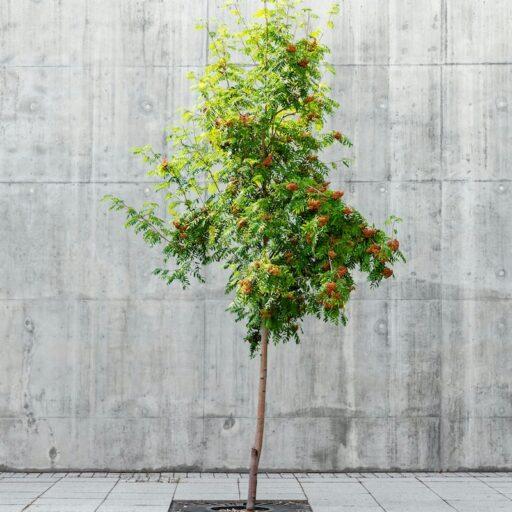
It’s one of the world’s biggest sources of emissions, but not for much longer perhaps. This week, scientists unveiled a low-carbon technique for recycling cement.
The process, developed by academics at the University of Cambridge, England, uses excess heat from another industry – steel recycling – to reactivate old cement, sidestepping tonnes of emissions.
A study, published in the journal Nature, suggests the process does not add significant costs to concrete or steel production. If the arc furnaces used to melt steel are powered by renewables, the technique could be emissions-free.
Cement is the second most consumed material on the planet after water. Producing it accounts for around 7.5% of global carbon emissions.
Prof Julian Allwood from Cambridge’s department of engineering described the discovery as “a breakthrough for the construction industry” and said that it shows “opportunities for innovation on our journey to zero emissions extend far beyond the energy sector”.
Image: Pawel Czerwinski

The US arrived late to the renewables party, but the country’s green energy sector is booming – and bringing many benefits.
That’s according to a new study, which charted the rise of renewables in the US between 2019 and 2022. Researchers recorded a 55% rise in wind and solar over the period, which they said cut carbon emissions by 900m metric tonnes – the equivalent of taking 71m cars off the road each year.
What’s more, researchers found that the green energy surge saw sulphur dioxide and nitrogen oxide emissions – both linked to asthma – decrease by 1m metric tonnes over the three-year period.
The US still has come catching up to do, though. The EU and China are currently the world’s green energy superpowers. Last year, the latter accounted for 51% of additional global solar generation and 60% of new global wind generation.
Image: Jennifer Griffin
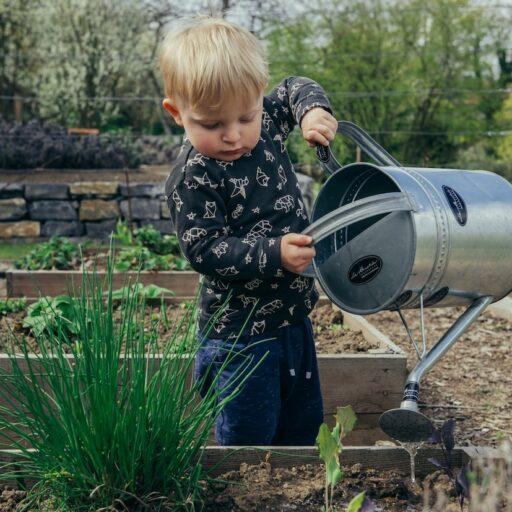
Projects to create green spaces for UK communities with limited access to nature are to receive a share of £1m, funded by Starbucks’ disposable cup charge.
Eight charities will be awarded grants worth between £25,000 and £200,000 over a two-year period to fund green spaces for health workers, patients and people living in built up areas. It comes amid mounting evidence that prescribing time in nature can improve wellbeing.
“Studies have shown that spending time in nature makes people more likely to make more environmentally friendly lifestyle choices, as well as helping to lower their stress levels, reduce anxiety and combat loneliness,” said Gavin Ellis, co-founder of the charity Hubbub, a partner in the project. “Initiatives to harness the enormous potential of green social prescribing have never been more crucial.”
Image: Filip Urban

A mountain plant that hasn’t been seen in Wales since 1962 has been reintroduced to the country.
Rosy saxifrage is thought to have slipped into extinction in Wales due to overcollection by plant enthusiasts, particularly in the Victorian era. It has now been returned to a secret location where it is being monitored.
“Successfully returning a lost species to the wild marks a special moment for nature recovery,” said botanist Robbie Blackhall-Miles (pictured, left), who led the project. “Rosy saxifrage’s sad demise was driven chiefly by plant collectors’ greed, so this project represents returning stolen jewels to their rightful place in the Welsh landscape.”
Image: Llyr Hughes

The Scottish capital has become the latest UK city to ban ads for polluting products on council-owned billboards.
Following an example set by Sheffield, Edinburgh council has said it will no longer let fossil fuel firms, airlines, airports, SUV makers, cruise companies or arms manufacturers plug their products on council-owned advertising spaces.
The move was welcomed by Robbie Gillett of the campaign group Adfree Cities. “Our daily exposure to adverts encouraging us to buy more and more polluting products runs in contradiction to the urgent need to decarbonise our economy,” he said. “Edinburgh council have taken an important step to resolve that contradiction.”
Image: Jim Divine

A father who was left without the right to parental leave after his wife died in childbirth has secured a change in the law in England, Wales and Scotland.
Aaron Horsey’s wife, Bernadette, died while giving birth to their son, Tim, in 2022. Because Horsey, a clinical trial manager, had worked for his company for fewer than nine months, he did not have the right to parental leave.
While grieving for his wife, he lobbied hard for a change in the law. Last week, in one of the last acts of the current parliament, a bill passed that will ensure non-birthing partners who find themselves in the same situation will get the right to parental leave.
“I would prefer not to have faced this situation,” Horsey told The Guardian. “But I did, and my wife’s impact on me as a person has provided that inspiration to see it through. Hopefully I have also shown Tim that you can make a change.”
Image: Kelli McClintock

Indigenous languages were purged by colonial settlers in Canada, so the sound of Anishininiimowin being spoken in Ontario’s legislature this week was a historic moment.
New Democrat Sol Mamakwa(pictured) spoke for 10 minutes in his mother tongue on Tuesday, marking the first time anyone has spoken a language other than English or French in the province’s legislature.
“I am speaking for those who couldn’t use their language … and for every Indigenous person in Ontario,” he said. “The language was taken from us by the arrival of the settlers. Everyone that’s listening, we need to revitalise our First Nations language. Teach your children to speak their First Nation’s language and to be proud of it.”
Image: Creative Commons

Chill. That’s the idea behind South Korea’s annual ‘spaced out’ competition, which returned last Sunday to celebrate the lost art of doing nothing.
Participants gathered in a park in Seoul to relax and see who could record the lowest heart rate.
The annual jamboree was started by artist Woopsyang in response to South Korea’s punishing work culture. This year’s competition was won by Valentina Vilches, who is from Chile but who now lives in Seoul.
If you’re struggling to follow her example, then try these tried and tested habits that helped Positive News readers become more zen.
Image: Mitbg000/Pexels
Main image: Unsplash
Get your weekly fix of good news delivered to your inbox every Saturday, by signing up to the Positive News email newsletter.
Be part of the solution
Positive News is helping more people than ever to get a balanced and uplifting view of the world. While doom and gloom dominates other news outlets, our solutions journalism exists to support your wellbeing and empower you to make a difference towards a better future.
But our reporting has a cost and, as an independent, not-for-profit media organisation, we rely on the financial backing of our readers. If you value what we do and can afford to, please get behind our team with a regular or one-off contribution.
Give once from just £1, or join 1,400+ others who contribute an average of £3 or more per month. You’ll be directly funding the production and sharing of our stories – helping our solutions journalism to benefit many more people.
Join our community today, and together, we’ll change the news for good.

